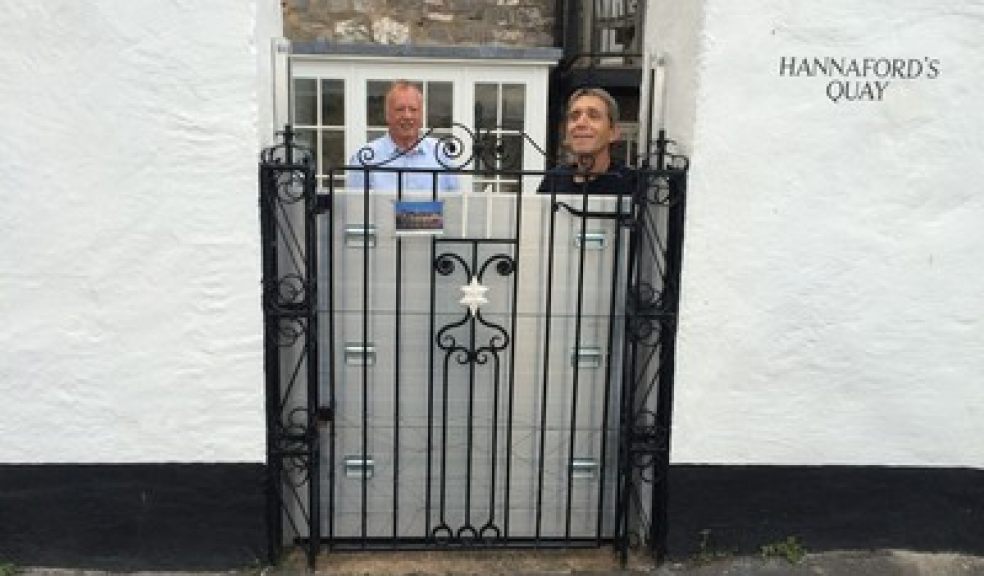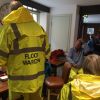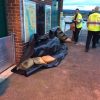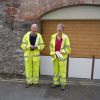
Topsham prepared for winter's worst
Residents along the river frontage in the estuary-side town of Topsham were full of praise for the flooding exercise that took place on Wednesday evening of this week.
The exercise was aimed at raising awareness of the risk of flooding in the town – which suffered from floods in the storms of February 2014 – which allowed residents to test their own property defences.
The exercise also tested the readiness of Topsham’s recently recruited Flood Wardens, 10 of whom were deployed across 5 sectors covering the town’s 1.5 mile river frontage, from the recreation ground through to Riversmeet.
Whilst out and about, the Flood Wardens undertook an audit of flood defences, which showed that half of the 150 properties in the flood zone now have their own flood defences, although many of the unprotected ‘properties’ were either garages or those at a raised level.
Of those with flood defences, nearly three quarters put them out that evening, raising many issues. Ferry Rd resident Bob Guppy found the practice putting up his flood boards – only purchased 3 months ago – very useful.
He said “I found fitting the defences was more difficult than I first thought – however I was able to work it out and I’m now confident in doing it in a real emergency”. Bob was not the only one to experience problems, Roger Morton from GRK Flood Defences was on stand-by to lend assistance to those properties with their flood boards, helping out more than half a dozen people during the course of the evening.
At the end of the exercise the Environment Agency and Fire Service combined to demonstrate how to build a water-resistant sandbag wall, and the Fire Service to the opportunity to check with residents not only about their flood defences but also requested them to check smoke and carbon monoxide alarms.
Richard Horne, Topsham Emergency Group Coordinator and organiser of the exercise said “We hear a lot about of communities pulling together in difficult times – well this was an example of a community working together in ‘slow time’ in a non-emergency situation. We learnt an awful lot, both for individual residents and for those coordinating the exercise. We are now more familiar with our role in relation to the emergency services and the community is better prepared should we experience flooding again.”






















